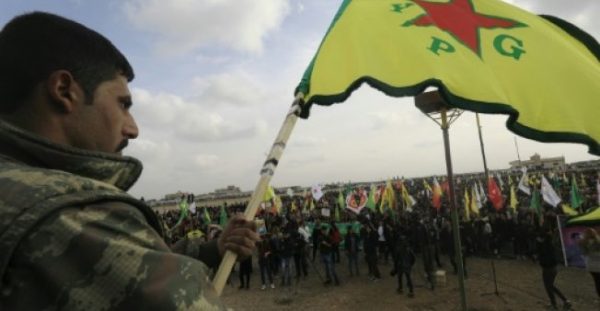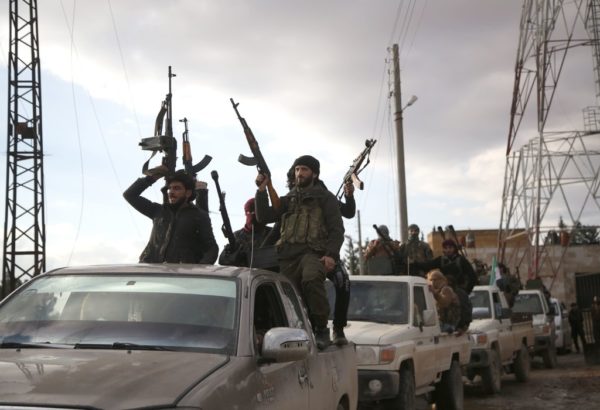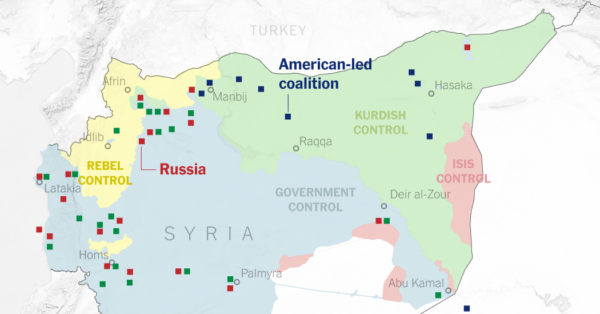
BEIRUT, Lebanon — Feeling betrayed by the United States, its Kurdish allies in Syria asked the Syrian government on Friday to protect them from possible attack by Turkey.
The request appeared to help open the way for the forces of President Bashar al-Assad of Syria, backed by Russia and Iran, to start retaking the Kurdish-held part of the country near Turkey’s border. That would be a big step toward Mr. Assad’s goal of reclaiming all of Syria, upended by almost eight years of war.
It also was the first sign that President Trump’s abrupt announcement last week that he was withdrawing American troops from Syria was not only shifting alliances in the conflict but directly benefiting Mr. Assad — a brutal autocrat once described by Mr. Trump as an “animal” responsible for chemical attacks and other atrocities.

American-backed Kurdish People’s Protection Units, or Y.P.G., said the Syrian government should send troops to the city of Manbij, near the Turkish border.
The Kurdish militias are regarded by Turkey as dangerous autonomy-minded insurgents. The United States regards them as valuable partners in helping rout Islamic State extremists from Syria — the original purpose of the American military deployment four years ago.
Although the American troops number only about 2,000, they have been a deterrent to an assault on the Kurdish militias by the Turks. The American presence also discouraged Mr. Assad’s forces from sweeping into the area even as they retook major areas elsewhere from anti-government fighters, often with the support of Russia and Iran.
With the request for help on Friday, the Kurds invited Mr. Assad into at least some of those areas that he had coveted.
Kurdish control of the region is opposed not only by the Turks, but also by the government of Mr. Assad as well as its Russian and Iranian backers, who want the territory to fall back under the control of Damascus.
Mr. Trump’s surprise announcement that he would pull American troops had raised fears of a scramble by competing forces to take advantage of the resulting vacuum.
Through their alliance with the United States, Syria’s Kurds gained unprecedented military and political power during the war. As the Islamic State fighters were pushed back, the Kurds often filled the political gap left behind, establishing councils to run local affairs.
But aware that the United States could eventually withdraw, they had also begun talks with the Syrian government about reconciling.
Abdulkarim Omar, a foreign relations official with the Kurdish-led administration in northeastern Syria, said by phone on Friday that the talks continued and that the only issue that had been agreed upon so far was the Syrian Army deployment near Manbij after the Americans withdraw.
When asked if that agreement had been coordinated with the United States, he said: “You can ask the Americans.”
But much remains uncertain for the Syrians living in those areas, especially since the two parties to the agreement described it in different ways. The Kurds said that the Syrian Army would take over only border areas to protect against a Turkish attack, but would not deploy inside the city itself.
But the Syrian Army said on Friday that its troops had entered Manbij and hoisted the Syrian flag. The Syrian Army made no reference to the Kurds, but spoke instead of “the complete commitment of the Syrian Army in assuming its responsibilities to impose sovereignty to each inch of the Syrian territories.”
That appeared to leave little room for the Kurds to run their own affairs.
Residents of the city, however, said that Syrian troops had not entered the city. The American-led coalition in Syria also said on Twitter that it had seen “no indication that these claims are true.”
“We call on everyone to respect the integrity of Manbij and the safety of its citizens,” the coalition said.
 As of mid-December, the Syrian government holds the central and southern parts of the country.
As of mid-December, the Syrian government holds the central and southern parts of the country.
Leave a Reply
You must be logged in to post a comment.